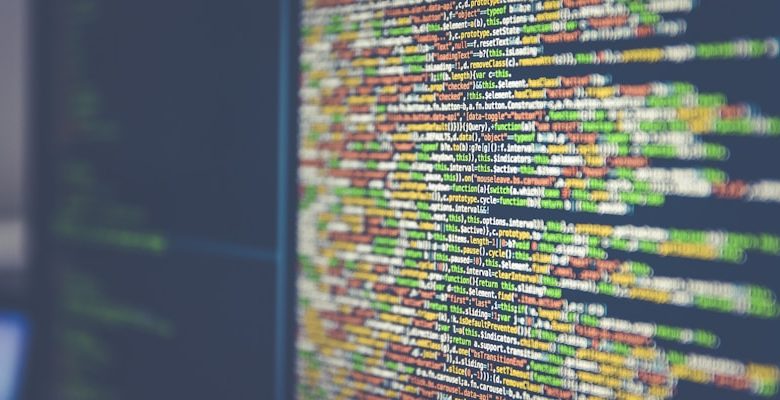The Impact of Quantum Computing on Secure Vault Technology

- Understanding Quantum Computing Basics
- Challenges in Secure Vault Technology
- Enhancing Encryption with Quantum Computing
- Quantum Computing’s Threat to Traditional Security Measures
- The Future of Secure Data Storage
- Preparing for the Quantum Computing Revolution
Understanding Quantum Computing Basics
Quantum computing basics are essential to understand the potential impact on secure vault technology. Quantum computing is a revolutionary approach that uses quantum bits, or qubits, to perform computations. Unlike classical computing, which uses bits that can only be in a state of 0 or 1, qubits can exist in multiple states simultaneously due to the principles of superposition and entanglement.
This ability to exist in multiple states at once allows quantum computers to process vast amounts of data and solve complex problems much faster than classical computers. Quantum computing has the potential to revolutionize industries such as finance, healthcare, and cybersecurity by enabling the development of powerful algorithms that can break traditional encryption methods.
One of the key implications of quantum computing for secure vault technology is its impact on encryption. Current encryption methods rely on the difficulty of factoring large numbers to secure data. However, quantum computers can factor large numbers exponentially faster than classical computers, posing a significant threat to conventional encryption methods.
Challenges in Secure Vault Technology
One of the biggest challenges in the realm of secure vault technology is the potential threat posed by the advancement of quantum computing. As quantum computers continue to evolve, they have the capacity to break traditional encryption methods that are currently used to secure vaults. This presents a significant risk to the security of sensitive information stored within these vaults.
Quantum computing operates on a completely different level than classical computing, utilizing quantum bits or qubits to perform calculations at speeds exponentially faster than even the most powerful supercomputers. This means that encryption techniques that rely on the difficulty of factoring large numbers, such as RSA encryption, could be easily compromised by quantum computers.
As a result, researchers and developers in the field of secure vault technology are faced with the challenge of creating encryption methods that are resistant to attacks from quantum computers. This involves exploring new cryptographic techniques, such as lattice-based cryptography or multivariate polynomial cryptography, that are believed to be quantum-safe.
Enhancing Encryption with Quantum Computing
Enhancing encryption with quantum computing has the potential to revolutionize secure vault technology. Quantum computing can significantly strengthen encryption methods by leveraging the principles of quantum mechanics. This advancement in technology offers a more secure way to protect sensitive information stored in secure vaults.
Quantum computing utilizes quantum bits, or qubits, which can exist in multiple states simultaneously. This allows for the creation of encryption keys that are virtually impossible to crack using traditional computing methods. By harnessing the power of quantum superposition and entanglement, encryption can be enhanced to safeguard data more effectively.
One of the key benefits of enhancing encryption with quantum computing is the ability to create unbreakable codes that ensure the confidentiality and integrity of stored information. This level of security is crucial in today’s digital age, where cyber threats are constantly evolving.
Quantum Computing’s Threat to Traditional Security Measures
Quantum computing poses a significant threat to traditional security measures, including those used in secure vault technology. The immense processing power of quantum computers has the potential to break through encryption algorithms that are currently considered secure. This means that sensitive data stored in secure vaults could be vulnerable to cyber attacks in the future.
Unlike classical computers, which use bits to process information as either 0 or 1, quantum computers use qubits that can represent both 0 and 1 simultaneously. This allows quantum computers to perform complex calculations at an exponentially faster rate, making it possible for them to crack encryption keys that would take classical computers thousands of years to decipher.
As a result, organizations that rely on secure vault technology to protect their most valuable assets need to start preparing for the era of quantum computing. They will need to upgrade their security measures to ensure that their data remains safe and secure in the face of this emerging threat. This may involve implementing quantum-resistant encryption algorithms or developing new security protocols that can withstand attacks from quantum computers.
The Future of Secure Data Storage
As quantum computing continues to advance, the future of secure data storage is being redefined. Traditional methods of encryption and secure vault technology may no longer be sufficient to protect sensitive information from the power of quantum computers.
Quantum computing has the potential to break current encryption protocols, making data vulnerable to cyber attacks. This means that the way we store and secure data needs to evolve to keep pace with this new technological landscape.
One potential solution is the development of quantum-resistant encryption algorithms that can withstand the power of quantum computers. These algorithms are designed to be secure against quantum attacks, ensuring that data remains safe even in the face of this new threat.
Another approach is the use of quantum key distribution (QKD) technology, which leverages the principles of quantum mechanics to secure communication channels. QKD uses the quantum properties of particles to create secure encryption keys, making it nearly impossible for hackers to intercept or decipher sensitive information.
Overall, the future of secure data storage lies in adapting to the challenges posed by quantum computing. By embracing new encryption techniques and technologies, we can ensure that sensitive data remains protected in the quantum era.
Preparing for the Quantum Computing Revolution
As the era of quantum computing approaches, it is crucial for secure vault technology to adapt and evolve in order to stay ahead of potential threats. Quantum computing has the potential to break traditional encryption methods, making it imperative for organizations to prepare for this revolution in computing.
One key aspect of preparing for the quantum computing revolution is to invest in research and development of quantum-resistant encryption algorithms. These algorithms are designed to withstand attacks from quantum computers, ensuring the security of sensitive information stored in secure vaults.
Furthermore, organizations should consider implementing quantum key distribution (QKD) protocols to enhance the security of their vault technology. QKD utilizes the principles of quantum mechanics to secure communication channels, making it extremely difficult for malicious actors to intercept or tamper with data.
It is also important for organizations to stay informed about the latest advancements in quantum computing and secure vault technology. By staying up-to-date on new developments, organizations can proactively update their security measures to protect against emerging threats posed by quantum computers.
In conclusion, preparing for the quantum computing revolution requires a proactive approach to enhancing the security of secure vault technology. By investing in quantum-resistant encryption algorithms, implementing QKD protocols, and staying informed about advancements in quantum computing, organizations can ensure that their sensitive information remains secure in the face of evolving threats.



